Caster Semenya is a woman on a mission. “The battle is no longer about me. It’s about the next generation” she says resolutely. “Now, the most important thing is to protect young, upcoming girls to make sure that they are not violated. That they’re included and that they enjoy their childhood.”
It’s a profound statement from a woman who has experienced what it is to be violated by one of the most powerful sporting bodies in the world. Caster has spent much of her life as an elite athlete, fighting the International Association of Athletics Federation (IAAF), now known as World Athletics, for the right to be included and to compete against her peers on the athletics track. In 2019, new regulations by the athletics governing body prevented intersex women like Caster from competing in various races in the female classification, unless they took medication to suppress the testosterone levels in their bodies. It was a decision that would force Caster to stop competing and launch one of the most important legal battles of our time.
But this is not where Caster’s story begins or where it ends.
I first met her at a photo shoot at a modest office park in Randburg. A section of the building has been converted into a large, elegant studio for today’s shoot. Set in an industrial part of town, the address is difficult to find, but towering over her manager, Becky Motumo, Caster is not. The two of them are huddled together over a phone, deep in conversation, when Caster lets out a burst of laughter. It’s a sound that I’ll hear often over the next few days because if there’s one thing Caster enjoys, it’s a good laugh.
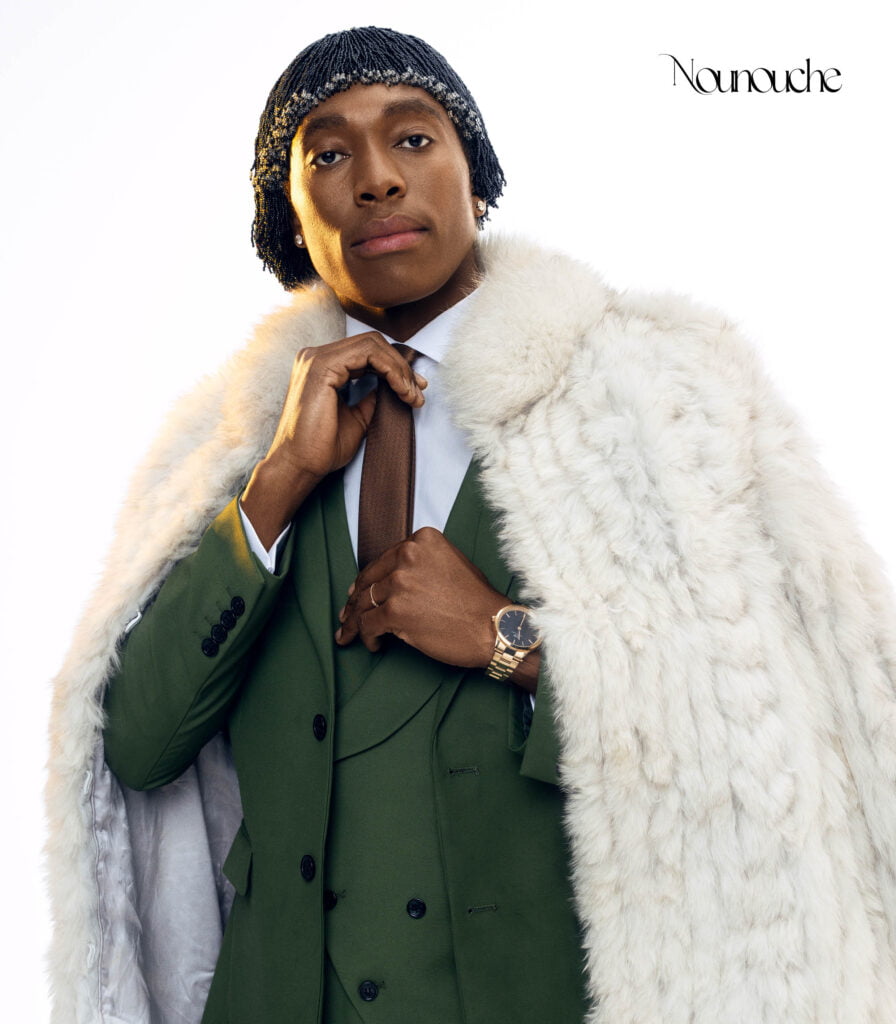
Moments later though, there’s a tug of war between the Olympic gold medallist and the hair stylist over a beaded headpiece. Caster isn’t impressed with the choice of headgear and she’s convinced that it won’t suit her. “I know myself better than anyone” she says emphatically. Becky intervenes and after some gentle cajoling, Cas, as she’s affectionately known, finally relents. It’s clear that theirs is a powerful story of trust and friendship and when Becky speaks, Cas often listens.
Caster comes from a big family – four sisters and a brother – so she’s used to standing her ground. She has the best memories of her childhood, including hours spent playing soccer with her male cousins. “It toughens you up,” she says. “You’re not scared of any challenge because you’re always around the boys.” But there’s something else that she attributes to her upbringing – a strong sense of self.
“When you grow up in a family like that, that loves you and appreciates and accepts you for who you are, I think you will say that you had the best childhood.”
She explains that from early on she understood that she was different, but that her parents never sought to change her. Instead, they propelled her towards greatness.
“The Love that my family gave me, gave me strength,” she says.

Caster also credits their devout love and support for her resilience in the face of adversity. In 2009, then 18 years old, she won gold in the 800m World Championships. It followed an extraordinary showing at the African Junior Championships a few months earlier.
The world was taking note, and Caster soon found herself the subject of a raging debate about females with high levels of testosterone competing in women’s sport. But despite the sharp lens on her, Caster remained resolute.
Her philosophy is simple, “even if you reject me, it does not stop me from being who I am, achieving my goals, and just being myself.” Being herself is a recurring theme in my conversations with Caster and one she explores in her new book The Race To Be Myself.
In it, Caster shares her powerful story of how a village girl from Limpopo rose to become one of the most important sporting figures of our times. A woman who faced public humiliation while fighting for the right of every person to compete as they are.
“I’m used to being looked at in a different way,” she says. “If I tell (people) I’m a girl, they’d be like ‘are you sure you’re a girl?’”. Caster explains that initially she wasn’t concerned about what people thought of her. “I worry about things I can control,” she says. “Other people’s perceptions of me have got nothing to do with me. It’s their perception, it’s their business, it’s their problem.” But that all changed when perceptions began to impact her ability to race. “It became a problem when they started saying that you can’t run because you’re not woman enough. Like, what does that mean? That’s when the saga started.”
The saga as she describes it, is her ongoing legal battle with World Athletics to allow her and women like her to compete without being forced to take testosterone-suppressing medication.
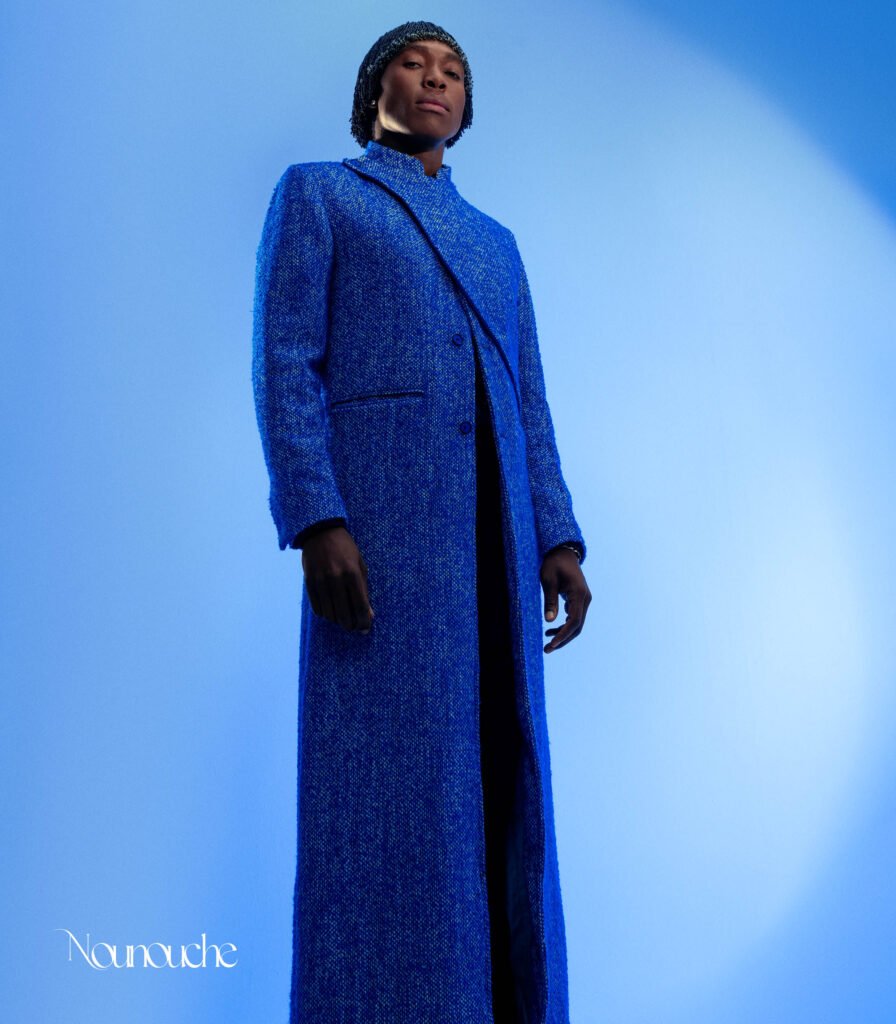
In 2021, Caster appealed against the 2019 regulations. The European Court of Human Rights ruled in her favor in July this year. It’s a seminal judgment, but it isn’t the end of her fight.
“I’m happy with the judgment,” she says, “but remember this is one hell of a fight.” She explains that it’s not over. “That battle is more for fighting for inclusivity, fighting for human rights. It’s not yet me fighting for running.”
The fight to race is a one that Caster wasn’t always sure she even wanted to get into. Initially she delayed the legal process, unwilling to go into battle if it wasn’t going to benefit her.
“I delayed it a bit. I was like, I’m not ready to fight this. Let’s make sure that I protect myself first. I still need to run, I’m still an athlete, I’m still young. I want to pursue my career.”
This is a conversation we return to a few days later. “Running is the love of my life,” she says. “It has been good to me, it’s the only thing that makes sense to me, because when I do it, I feel free.”
Caster admits that her love for running led to her one true regret in her career. “I regret one thing,” she says thoughtfully. “In 2009 – the medication I took – I would say I regret that because it’s something that I did because I wanted to accomplish something. I didn’t do it because I wanted to do it, I did it because I wanted to stick around.”
Caster was only eighteen at the time. A difficult decision for a young adult to make.
“It is very important to forgive yourself” she says later. “We tend to say I forgive you, but deep down in your heart, do you forgive yourself, wena? Do you forgive yourself for the things you’ve done to yourself? Things that you’ve deprived yourself of? Things that you’ve stopped doing for yourself?” But, she reasons, if you don’t forgive yourself, then you can never live a good life.
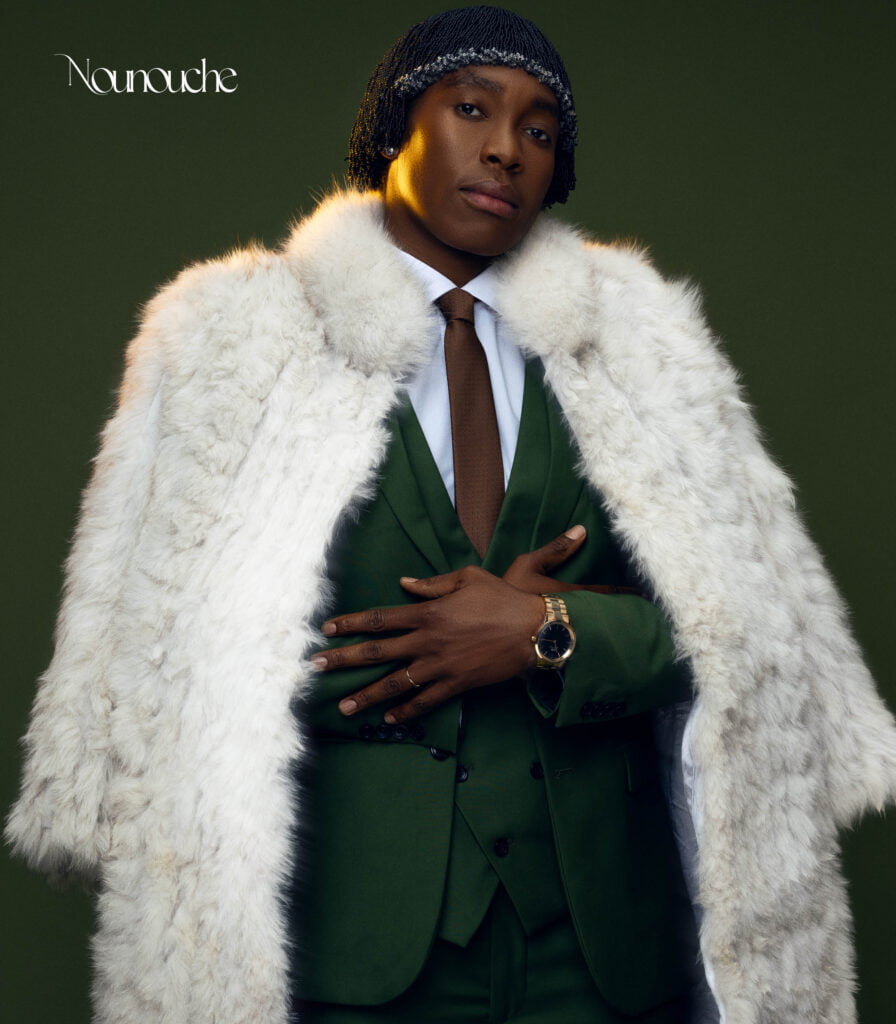
But Caster is living a good life. She and her wife, Violet Raseboya, have the family they’ve always wanted. “I met my wife in athletics,” she says. “She met me in the restroom. She heard this deep voice and asked, ‘what is there a boy doing in this room’. I said “Woman, if I was a boy, I would’ve been on the other side. I’m not a boy, I’m not lost. I have a right to be here, as you do.” Caster laughs as she recalls this moment. It’s a story she clearly enjoys remembering, as much as she enjoys retelling it.
“That’s why I always tell people, you should embrace who you are.” With a beaming smile, she says she enjoys her masculine features. “I love them, it’s good.”
The couple have two daughters. “I’ve always wanted to have my own family,” she says thoughtfully. “I’m enjoying it, it’s something that I love. It’s a special feeling to know that from here, I’m going home and there are people who are waiting for me.”
She explains that what she enjoys most about motherhood, is the unconditional love she’s experiencing. “You do it willingly, you do it pure-heartedly.”
“It takes courage to be a parent”, she says. Nobody knows how to be a mother, until they are a mother. Nobody knows how to parent until they parent. Those are the things that as a person, your children will teach you because they teach you things you’ve never experienced. It’s a once in a lifetime experience.”
But she insists that she was prepared for it. “I was ready for it. I’d accomplished everything that I wanted. I’m in the right time, the right space and the age is right for me to raise my kids. I’m no longer traveling like I used to before.” And like most parents, Caster is also determined to give her children more than she had.
“I’m going to open doors, create opportunities for them so that they can explore life”, she says. The most important thing,” she adds, “is that I will protect them at all costs. By all means. I will do anything for them.”
And now that her book has been written, Caster hopes youngsters will learn some important lessons from her story. “I just want them to understand one thing – just be yourself, live for yourself – that’s the most important thing.” She adds that she hopes that they won’t live their lives based on the perceptions of others. “They must just remember that it is very important to love yourself, respect yourself, appreciate yourself and be proud of yourself.”
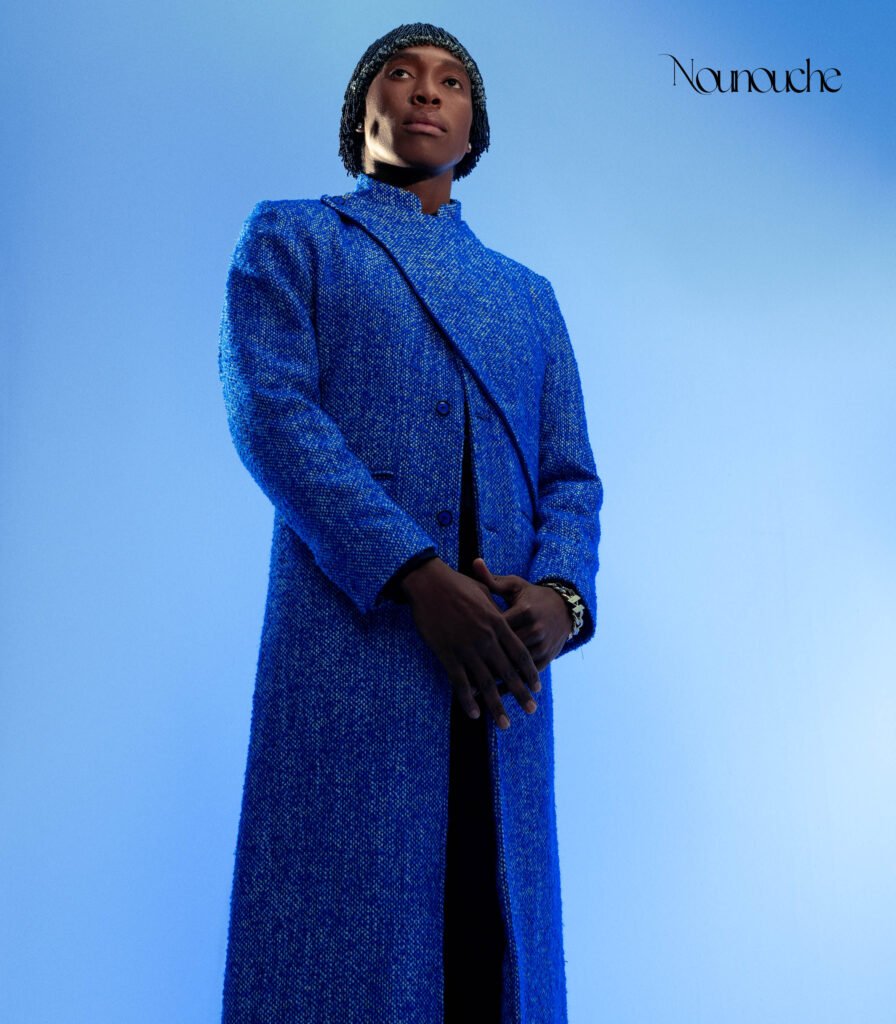
Now a coach, this is a philosophy Caster tries to teach her athletes. “Coaching is something that I love because of the experience that I had when I was self-coaching towards the end of my career.”
To hear a supremely fit Caster speaking of the end of her career at only 32 years old, is a startling reality.
When World Athletics changed its regulations, she was at her prime. But she’s unconcerned that she may not compete again.
“I have won all major titles,” she says. “For me, it’s never too late. I’ve achieved everything that I’ve ever wanted to achieve. Of course, they’ve delayed me, so that one is in the past. I can’t live in the past. I live in the future.”
Hers is a story of courage, of overcoming adversity, despite or because of the odds stacked against her. “I have no fear,” she says. “In life, I fear nothing because I’m free. I’m living my life, why must I fear?”
In 2019, after being crowned Miss Universe, Zozibini Tunzi was interviewed on Good Morning America in the United States. Now, as I reflect on my conversations with Caster, I’m reminded of Tunzi’s profound words about how she hoped her crowning would impact women around the world. “I think we are afraid to take up space. We are afraid to be amazing,” she said.
“As soon as that fear leaves us and we start building that confidence of being unapologetic about being great, then I think we can get into that space of having a lot of women leaders who are just fearless.”
These words strike a chord because if ever there was a fearless woman who takes up space – and unapologetically so – it’s Caster Semenya.

CREDITS:
Cover star: Caster Semenya
Cover story: Chwayitisa Futshane
Editor-in-Chief: Bonnie Meslane
Managing Editor: Sesetu Holomisa
Photographer: Austin Malema of RTC Studios
Creative Direction: Bonnie Meslane, Lesego Kgosimolao & Austin Malema
Makeup: Caroline Greeff
Hair: Bomzi
Wardrobe: Advice by KgosiLesego: Bongiwe Masina
Photography team: RTC Studios
Henry King on lighting
Tyrone Jhns on Digitech
Donovan Malema & Tshepo Zitha Assistant
Graphic Design: Herbert Chaunzwa
Production intern: Mbali Bunde
Studio: New Katz studio
Thank you Loyiso Mantanga for assisting with the track.
STOCKISTS
Suit: The Tuxedo Store
Shoes: Europa Art
Accessories: Preview Accessories
Coat: Imprint ZA


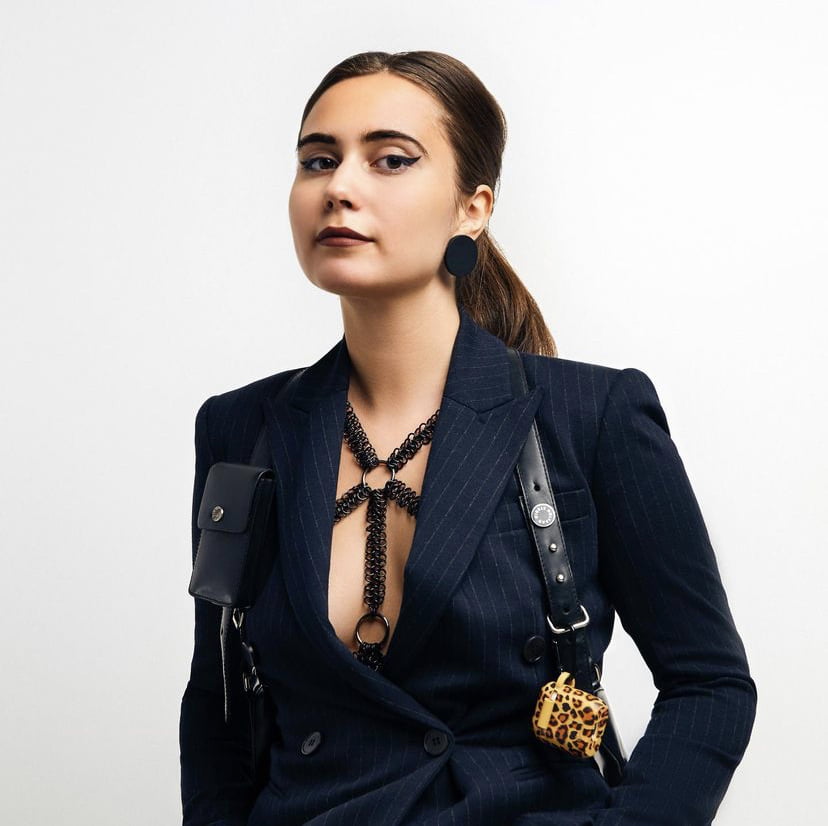



No Comments